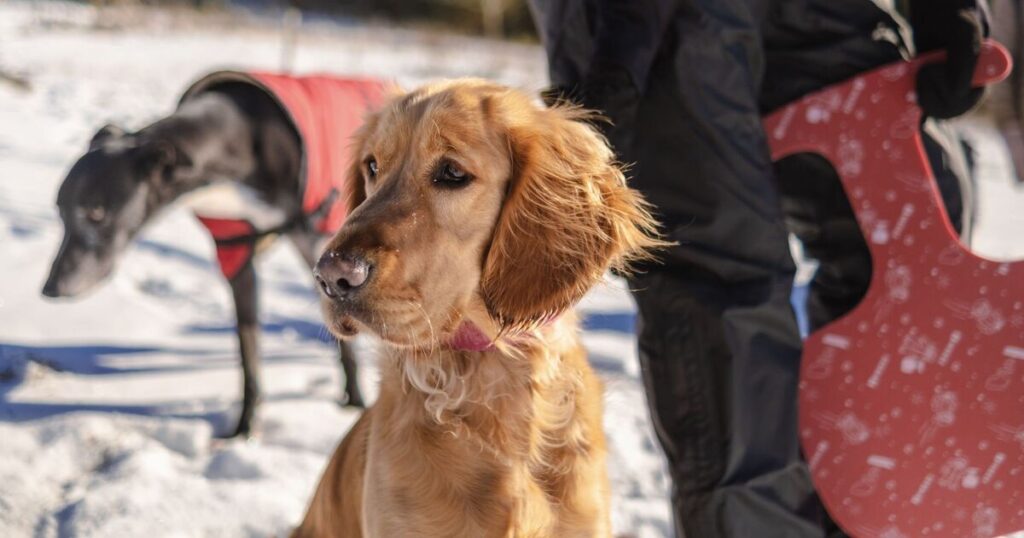
A vet has shared a warning regarding seven symptoms pets may show this winter that could be signs of more “serious” health problems. We’re all feeling the cold as temperatures up and down the country continue to plummet now that winter gets underway, but our pets may struggle with the chilly weather, too.
Experts at Medivet, a leading provider of veterinary care, are urging owners to keep a close eye on their four-legged friends as the winter sets in. From illness and frostbitten paws to more serious issues like hypothermia, vets say winter weather can cause a range of health problems for pets – and early warning signs are often easy to miss.
Millions of people across the UK own pets, with cats, dogs and more often becoming integral, valued members of the family.
While all good owners strive to keep their pets safe and healthy during all four seasons, the winter can present fresh challenges and dangers.
Many people turn to social media looking for advice, where a wealth of novices and experts alike are keen to share their knowledge and experience.
There are several warning signs to watch out for from your pet during periods of colder weather which could indicate something more serious.
They are:
- Shivering
- Excessive sneezing
- Runny nose
- Constant watery eyes
- Dry or flaky skin
- Drowsiness
- Whimpering/whining
Symptoms of hypothermia in pets
Hypothermia in pets is a serious concern and can, in some cases, even lead to their death so it’s important to be aware of any symptoms.
It comes about when an animal’s body temperature drops to a dangerously low level which can then bring on health issues which could lead to organs shutting down.
Even mild cases can lead to problems. If you believe your pet may have hypothermia, seek medical attention from a vet immediately.
Specific symptoms of hypothermia in pets also include:
- Shivering (although this may suddenly stop in pets when their temperature reaches dangerously low levels)
- Pale lips and gums
- Low energy
- A loss of coordination
Dr Rhian Littlehales, clinical governance director at Medivet, has shared guidance to help owners keep their pets safe throughout the harsh winter months.
The vet began with exercise and said: “While it’s important that your pet still gets time outside for exercise and toilet breaks, ensure they are only outside for short, but frequent bursts to minimise exposure to the cold.
“Prolonged cold exposure can cause your pet’s paws to crack, or even become frostbitten, and so it’s vital to keep walks and outside time brief and keep your pets moving and active at all times.”
The vet also advised checking your dog or cat’s paws for “signs of injury” after they’ve been walking outside and urged owners to “be vigilant about whether they appear to be in discomfort”.
Frozen surfaces are a hazard to animals but, equally, de-icer products like road grit and antifreeze can cause issues like chemical burns and dry, cracking paws.
The vet recommends washing paws with warm water after pets return from outside “to ensure no residue is left”.
They added: “These chemicals can also be harmful to your pet if ingested, especially cats as even a small amount can cause kidney failure and even death, so be careful to prevent them from getting any on their coat or licking it off their paws.
“If your pet does get these substances on them, clean it away thoroughly with warm water before drying.”
Dr Littlehales also recommends owners consider getting a coat for their pets, keeping them up to date with vaccinations, and to be especially careful in icy conditions which can make it tricky for them to “keep traction on the ground”.
This could result in breaks or sprains.
 Latest Breaking News Online News Portal
Latest Breaking News Online News Portal






